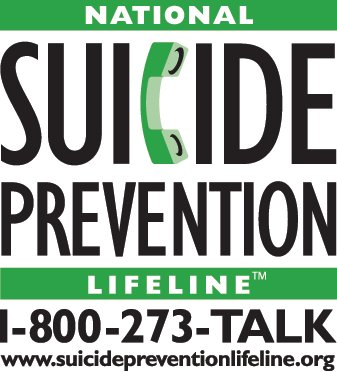The risk of suicide can be decreased if those closest to the individuals in crisis recognize the warning signs and know how to help. That is why everyone - friends, family members, co-workers, and teachers - needs to be familiar with the warning signs and basic intervention steps. In as little as one hour, the Gatekeeper Training Program can help equip you with knowledge that may help save a life.
We offer two types of training:
- The Gatekeeper Instructor Program (Part 1 & Part 2), and the
-
Suicide Risk Assessment and Triage

General 90 minute training is designed to:
- enhance general awareness about suicide through public education
- teach any non-mental health professionals about the warning signs of suicidal thinking and behavior, and
- teach three basic intervention skills that can help avert suicide
Training objectives:
- increase baseline knowledge about the roles of psychological and chemical disorders, along with chemical abuse in suicide cases.
- increase the number of persons of all ages who are referred for intervention and treatment for suicidal behaviors
- decrease the number of suicide attempts and completions, locally, nationally, and internationally
- increase Gatekeepers’ and first responders' confidence to make interventions and referrals
- increase awareness of community resources and how to access and utilize them

Course Objectives:
- to understand the nature, range, and importance of suicidal communications and their importance in preventing suicide
- to review and understand which groups are at the greatest risk for suicide and why Gatekeeper interventions help them
- to train participants to teach others about Gatekeeper Training
- to acquire specific knowledge about how audiences may respond to the Gatekeeper message and how to respond in a constructive manner
- to learn how to effectively promote suicide prevention in any community
Course Content:
- Gatekeeper Training: how, why, and what the research entails
- New and promising approaches to suicide prevention
- Targeting prevention education efforts
- Review of the course video
- Teaching the course
- Facilitating role plays
- Handling questions from audiences
- Expanding the program to other community prevention efforts
Certification program includes:
- Instruction manual complete with CD vignettes, suicide stats, and power point presentations
- A copy of the introductory video
- Tool kit with information on suicide related issues
- Two books written by the founder of the QPR Institute
- Certificate of Completion

For First Responders and Organizations Who Want to Help Prevent Suicide and Violence In Their Community
Triage Intervention is designed to:
- detect and assess immediate risks of suicide
- if present, reducing and removing means of risks of suicide
- get the suicidal individual to a professional for further assessment and treatment
Inclusive in the training are:
- the orientation to the Triage Training
- the Epidemiology of Suicide (65 minute video/ CD lecture)
- Mental Illness and Suicide (45 minute video/ CD lecture)
- the Current Climate of Suicide Risk Assessment
- intro to the Triage document
- teaching “How to ask the ‘suicide question’”
- teaching triage questions, rationale, and samples
- audio files for documentation practice
- role-play exercises





